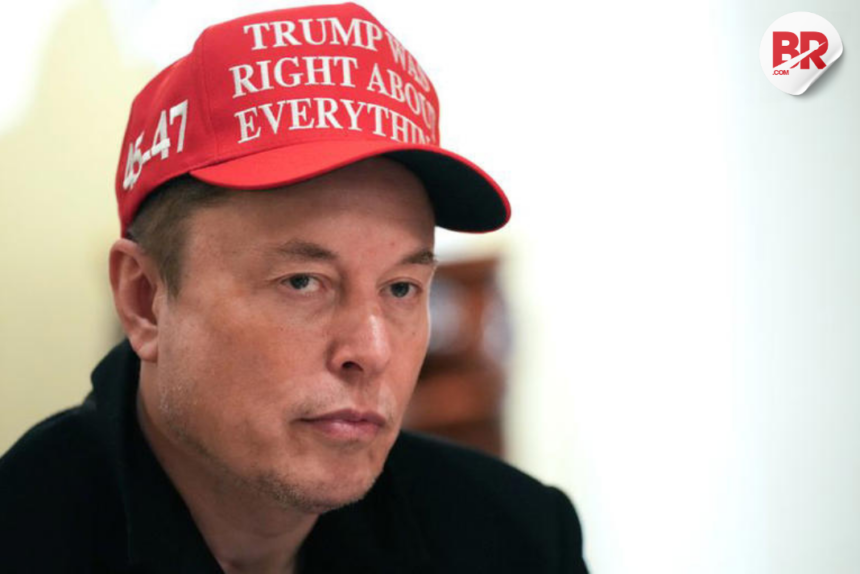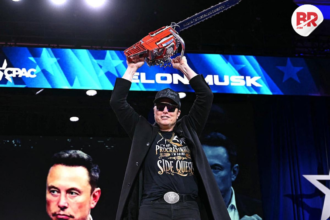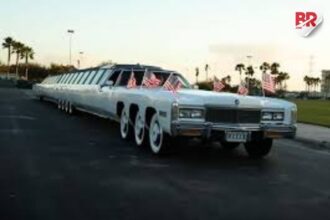
Despite rumors of an imminent leadership change at Tesla, the company’s chairwoman, Robyn Denholm, has publicly denied reports suggesting that the board is actively seeking a replacement for CEO Elon Musk.
In a post on X, Denholm shot down a Wall Street Journal article that claimed Tesla had engaged headhunters to find Musk’s successor. She affirmed that “The CEO of Tesla is Elon Musk, and the Board is highly confident in his ability to execute the growth plan ahead.”

Tesla’s Troubles: Financial Struggles and Political Backlash
While Denholm’s statement reassured investors, it’s clear that Tesla is facing serious hurdles.
In the first quarter of 2025, Tesla reported a staggering 71% drop in profits, missing even the most pessimistic forecasts. This sharp decline in earnings, combined with a 30% drop in stock price year-to-date, has rattled investors and cast doubt on Tesla’s future growth trajectory.
To make matters worse, Tesla has lost its title as the world’s top EV maker to China’s BYD.
This loss signals that Tesla’s dominance in the electric vehicle market is being challenged by fierce competition, particularly from foreign companies that are catching up quickly in terms of technology and affordability.
But the financial strain is only part of the picture. Tesla is also grappling with political controversy, largely due to Musk’s outspoken support for far-right groups and his ties to former U.S. President Donald Trump.
Protests, dealership vandalism, and sales declines in key markets like Europe and the U.S. have raised questions about the impact of Musk’s political alliances on Tesla’s public image.
Musk’s Commitments Amidst the Pressure
In response to these challenges, Musk has pledged to reduce his involvement in Trump’s “Department of Government Efficiency” (Doge).
Originally expected to remain involved until 2026, Musk has now scaled back his role and advises Doge remotely, prioritizing his duties at Tesla.
However, the question remains: is that enough? Can Musk balance his multiple business ventures, including SpaceX, X (formerly Twitter), Neuralink, and Tesla, without stretching himself too thin?
While Musk’s commitment to focus more on Tesla might reassure some, it’s hard to ignore the fact that his attention is divided. Tesla’s future, especially with its mounting financial and reputational struggles, may hinge on Musk’s ability to steer the ship while juggling so many other responsibilities.
It is an EXTREMELY BAD BREACH OF ETHICS that the @WSJ would publish a DELIBERATELY FALSE ARTICLE and fail to include an unequivocal denial beforehand by the Tesla board of directors! https://t.co/9xdypLGg3c
— Elon Musk (@elonmusk) May 1, 2025
The Growing Talk of Musk’s Successor
Although Denholm firmly denied the reports, the discussion about a potential Musk successor isn’t going away. In fact, it seems to be gaining momentum as Tesla’s struggles become more apparent.
If Tesla’s board were to eventually pursue a Musk successor, they would face a monumental task in finding someone capable of taking the reins of one of the world’s most influential tech companies.
So, who could fill Musk’s shoes? The ideal candidate for Tesla’s CEO would need a unique set of skills. They would need strong leadership, deep technical knowledge, and the ability to maintain Tesla’s position as a leader in EV innovation.
Whether it’s an internal candidate familiar with the company’s culture or an external leader with fresh ideas, the choice of Musk’s successor could be pivotal to Tesla’s ability to navigate its current crisis.
Earlier today, there was a media report erroneously claiming that the Tesla Board had contacted recruitment firms to initiate a CEO search at the company.
This is absolutely false (and this was communicated to the media before the report was published).
The CEO of Tesla is…
— Tesla (@Tesla) May 1, 2025
The Road Ahead: What This Means for Tesla and the EV Market
While the board has expressed confidence in Musk’s ability to lead, Tesla’s future remains uncertain. With the company facing significant financial setbacks, competition in the EV market, and reputational risks tied to Musk’s political activism, the search for a Musk successor may only intensify in the coming months.
For the average person, this could mean a few things. Tesla’s financial performance could influence the price and availability of its cars, while the company’s ability to recover from these challenges will affect the broader EV market.
If Tesla struggles to maintain its lead, other automakers could emerge as stronger competitors, potentially leading to lower prices and more options for consumers.
Tesla at a Crossroads: What’s Next?
Ultimately, while Musk’s reign at Tesla may not be ending anytime soon, the company is at a crossroads. The next few years will be crucial for Tesla as it navigates these challenges.
Whether Musk stays or a new leader steps in, the future of Tesla—and the electric vehicle industry as a whole—will depend on how effectively the company adapts to these new realities.
With fierce competition, financial struggles, and the weight of political controversies, Tesla’s leadership may be tested like never before.
The search for Musk’s successor may not be happening today, but it’s becoming harder to ignore the possibility that it will be a topic of much greater discussion in the near future.
Also Read Is Elon Musk Moving Away from DOGE? Here’s What He Said After Tesla’s Poor Q1 Results












